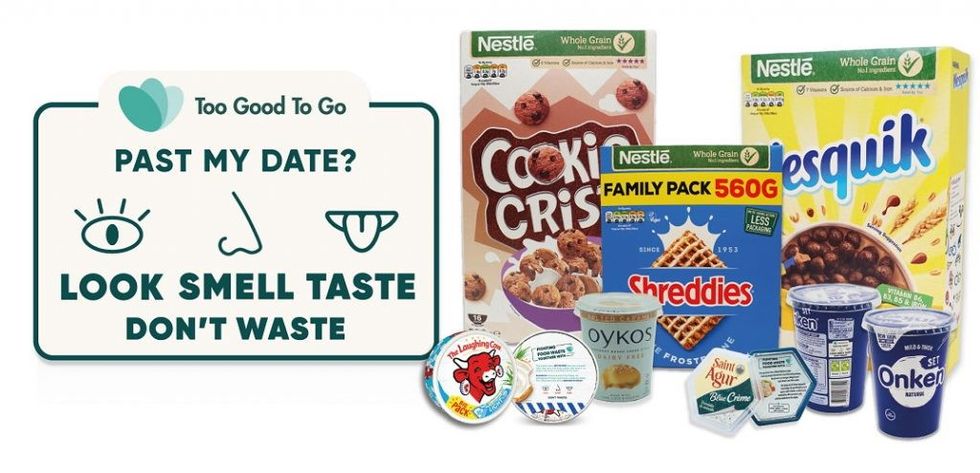Anti-food waste company Too Good To Go said more than 40 food and drink brands signed up to its 'Look, Smell, Taste, Don't Waste' campaign in its first year.
The initiative aims to tackle date label confusion by asking consumers to use their senses instead of purely following Best Before labels. It also encourages food brands to move from Use By to Best Before labels where safe to do so.
“We've seen an incredible appetite over the last year from food businesses joining our initiative and helping us to reduce the amount of perfectly good food that is wasted every day simply because of date label confusion. However, what is clear is that this is certainly not a job done,” Jamie Crummie, co-founder of Too Good To Go, said.
“There is still a huge amount of consumer education to be done, and there are tonnes more brands who we'd love to join our campaign in order to make even greater strides in reducing household food waste. I'm calling on other brands who haven't yet taken the steps to join the campaign to get in touch - we'd love to have you join our food waste movement.”
Latest survey data compiled by Too Good To Go has found that while 64 per cent of British adults correctly understand that Best Before dates mean that the food will not be at its best quality after the date shown, only half (52%) of Brits believe that food past it's Best Before date is perfectly safe to eat. This drops to 44 per cent of 18 to 24-year-olds.
In fact, Brits are throwing away £5.84 worth of food a week on average due to it being past its Best Before date.
Among the brands taking part are some of the nation's most-loved names including Arla (Cravendale), Bel Group (The Laughing Cow, GoGo squeeZ), Danone (Actimel, Activia, Oykos, Light & Free), Emmi UK (Onken & Beleaf), Nestlé (Cookie Crisp, Nesquik, Golden Nuggets, Shredded Wheat, Cheerios, Shreddies, Frosted Shreddies), PepsiCo (Tropicana, Copella), Savencia (Saint Agur) and Yeo Valley Organic.
Some Best Before product lines from these brands now include the initiative's pictogram, created by Too Good To Go, to remind consumers to trust their senses instead of just relying on ‘Best Before’ date labels.
Stefano Agostini, Nestlé UK&I CEO, said: "We've been delighted to support Too Good To Go's 'Look, Smell, Taste, Don't Waste' campaign this past year. We've been rolling out the new labelling across our key products which are produced in the UK and Ireland to build on the work we've been doing to reduce food waste across our operations.
"Our Nestlé Cereals now have the 'Look, Smell, Taste, Don't Waste' messaging on the boxes to make it clear that not all food that's gone past its Best Before date should be headed for the bin."
The Best Before date is an indicator of quality rather than safety. Food will be safe to eat after the date shown, but it's flavour and texture may not be as good quality. On the other hand, Use By dates are safety measures stating that food should not be eaten after the date shown, regardless of whether it looks and smells fine.
A full list of participating brands can be found here.





















